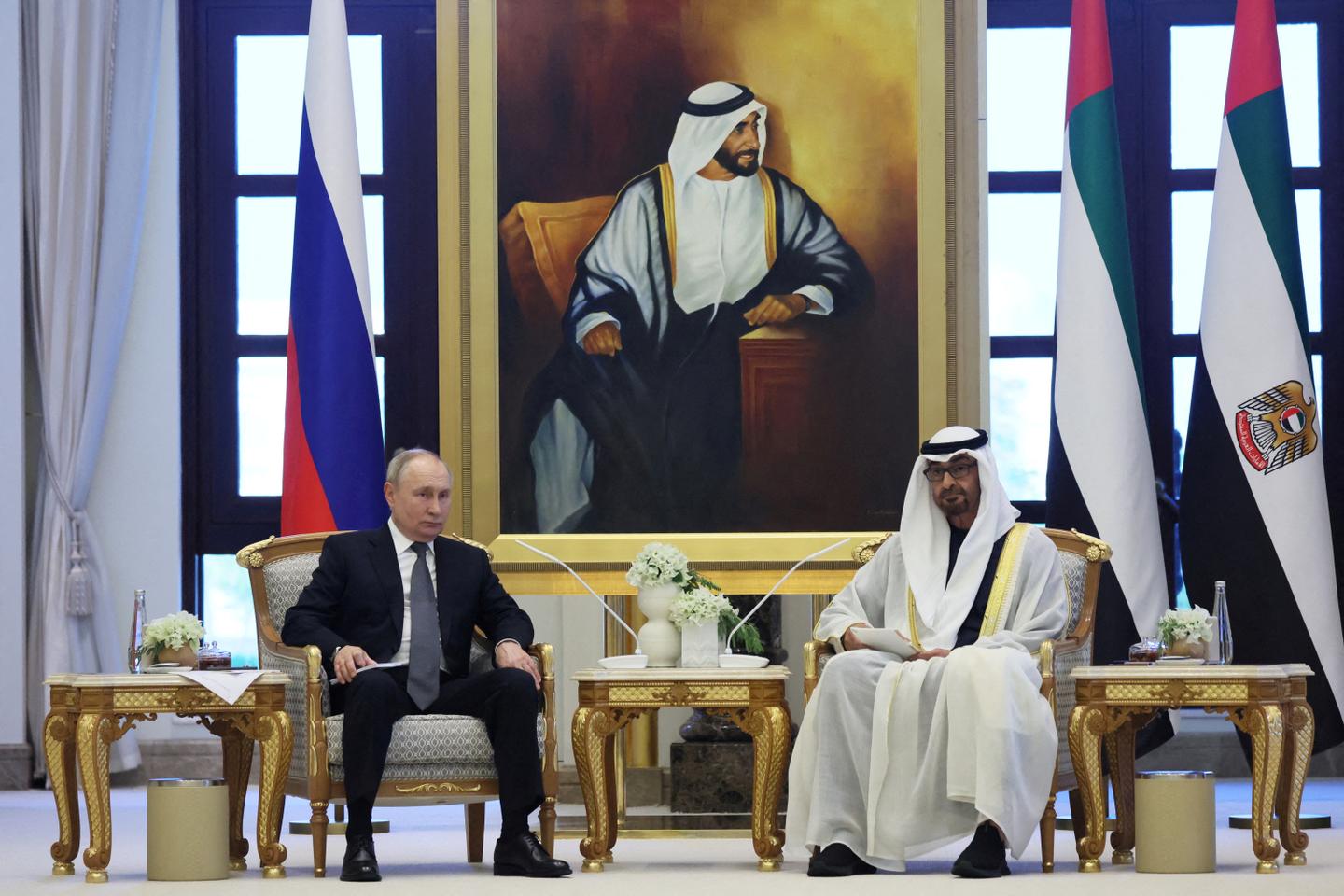


On the morning of Wednesday, December 6, Russia's colors were flying in the skies over the Persian Gulf. Emirati fighter jets released thick wisps of white, blue and red smoke. The United Arab Emirates (UAE) was hosting Vladimir Putin on an official visit, as would Saudi Arabia, a few hours later. It was a far cry from the martyrdom undergone at the same time by the people of Gaza. Yet the Russian president's brief escapade in Arab lands illustrated one of the laws of today's world: Alliances aren't what they used to be.
The Russian president arrived aboard his Ilyushin-96, escorted by four Sukhoi-355s, displaying his country's military strength and status as a great power. Amid the Ukraine and Gaza wars, the Kremlin's strongman was greeted with great pomp and ceremony, in Abu Dhabi as in Riyadh, by two countries close to the United States. The first lesson was a confirmation: Putin is not a pariah in the Arab world. And it wasn't just any country in the Arab world. Both of his hosts belong to the Western zone of influence in the Middle East. The UAE (1.2 million citizens) and Saudi Arabia (35 million) depend on Washington for their security.
The two local strongmen, the UAE's Mohammed bin Zayed (known as "MBZ") and Saudi Arabia's Mohammed bin Salman ("MBS"), at the helm of two oil powers, are informal strategic allies of Washington. But, in a sign of the times, they are not aligned with American policy. On Ukraine, for example, they have observed strict neutrality.
MBZ and MBS have confirmed a movement of political emancipation on the part of two monarchies historically close to America. Just 10 or 15 years ago, the Americans could count on their Gulf friends to vote for them at the UN with their eyes closed. Today, they are openly flirting with China and Russia.
'A strategic dilemma'
It's another characteristic of the times: The countries of the global South, especially the rich ones, refuse to choose a camp or bloc. Depending on the subject, they sometimes follow the Russian-Chinese leadership, sometimes the Western group. Infidelity is part of the system. You can be in a relationship with the United States for defense, but in business with Russia. Divorce is not compulsory. Alliances are flexible, much more so than during the Cold War. While the UAE and Saudi Arabia are firmly in the West's strategic camp, they are also preparing to join the BRICS, the emerging nations that are challenging the West's pre-eminence on the international stage.
The UAE celebrated the Russian president, yet at the same time it has signed a deal to buy American radar detection systems to counter Iran, Moscow's strategic ally. The Emirates refused to condemn Putin's aggression in Ukraine, and have played a role in circumventing the economic sanctions imposed by the West against the Russians. Nevertheless, the Pentagon recently welcomed Abu Dhabi as a "vital partner for political stability" in the region.
You have 50% of this article left to read. The rest is for subscribers only.
